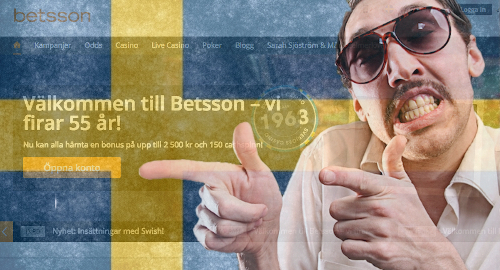 Sweden’s gambling industry continues to be viewed with disdain by a majority of the country’s residents, according to the results of a new survey.
Sweden’s gambling industry continues to be viewed with disdain by a majority of the country’s residents, according to the results of a new survey.
This week, the Swedish Quality Index (SKI) released the results of its second study of Sweden’s gaming market, which involved 1,300 respondents at the tail end of 2018. The results (viewable here, in Swedish) showed the industry as a whole garnered “very weak marks on customer satisfaction, trust and reputation.”
The gaming industry’s overall customer satisfaction score was 55.7 (out of 100), down slightly from the 56.4 score in the SKI’s first gaming survey in Autumn 2017. For the record, a score above 75 is considered ‘very good’ while anything under 60 “indicates a great dissatisfaction among customers.” Even the much-loathed banking industry scored a 65.
Of those surveyed, 58% expressed a negative view of the gaming industry, compared to 25% who had a favorable view and just 17% who held a very favorable view.
To put this into perspective, SKI CEO Johan Parmler said “we have not seen similar figures in any other industry or community sector during the 30 years we have been operating. You ask yourself how long the gaming industry can continue” on its current path.
Asked to describe the gaming industry in one word, the most popular responses – regardless of whether a respondent was an active gambler or not – were ‘money,’ ‘dependence,’ ‘profit,’ ‘advertising’ and ‘scam.’
Incredibly, more than three-quarters (77%) of respondents pleaded ignorance of the country’s new liberalized online gambling regime, which took effect on January 1 and allowed international operators to hold Swedish licenses for the first time. Even after learning of the new system, 29% of respondents expressed skepticism that it would contribute to a healthier and safer industry.
Jenny Nilzon, CEO of the Swedish Gambling Association (SPER), said the study was further proof that the gaming industry needs to “take this issue much more seriously than so far. We have a reputation that is not long-term sustainable … what we have done so far is not enough. We must become more transparent and through concrete measures show that we want to improve.”
It’s not like the industry didn’t see this coming. A 2018 Swedish advertising study revealed that consumers found gaming advertising the least credible of all industry sectors.
This week, Sweden’s Spelinspektionen regulatory body issued a warning to its new online gambling licensees to follow the rules regarding self-exclusion programs. Should the regulator be forced to lower the boom on non-compliant operators, the industry will likely have to discover a fix for climate change before it can work itself back into Swedes’ good books.